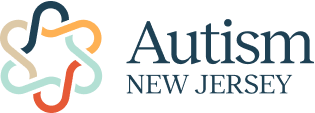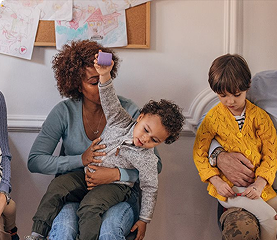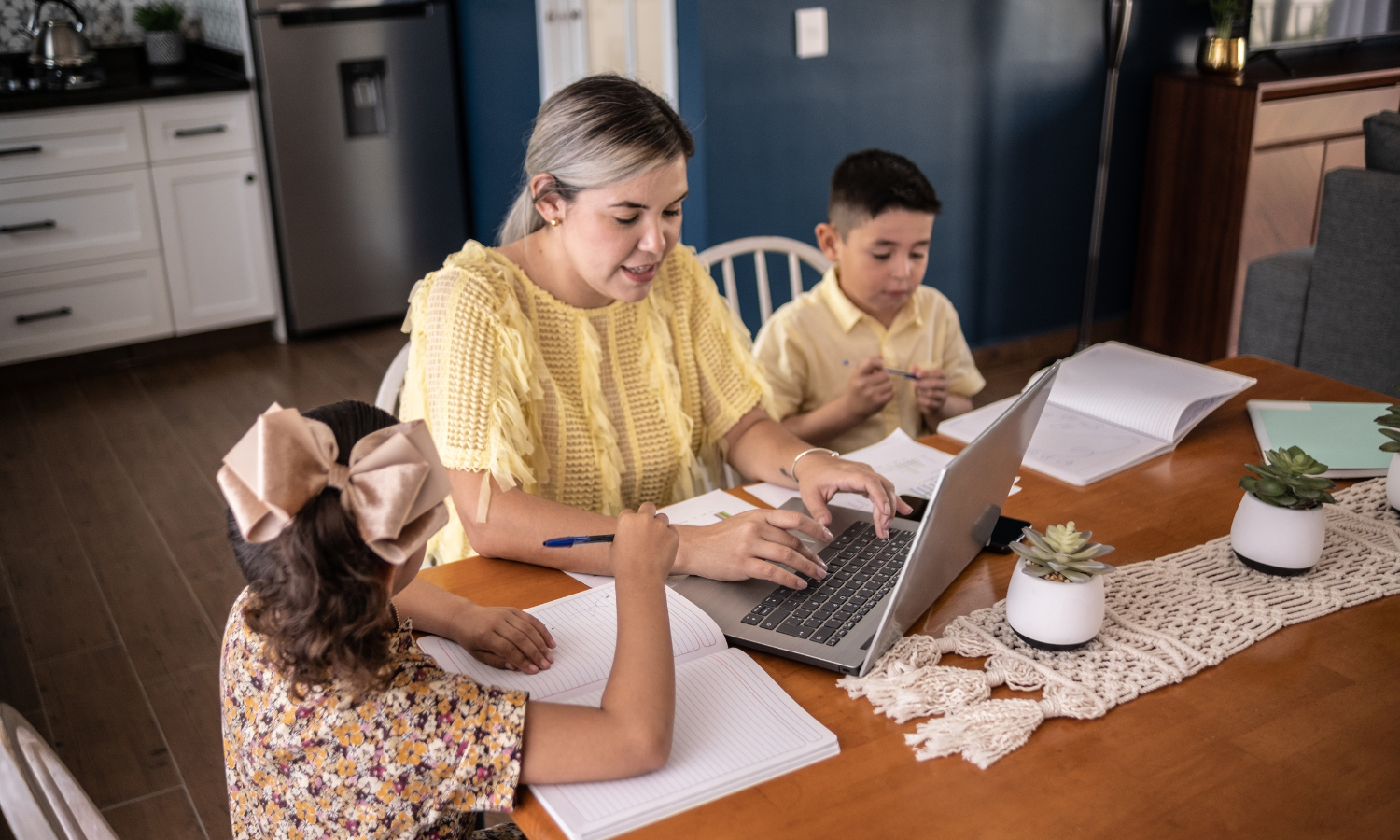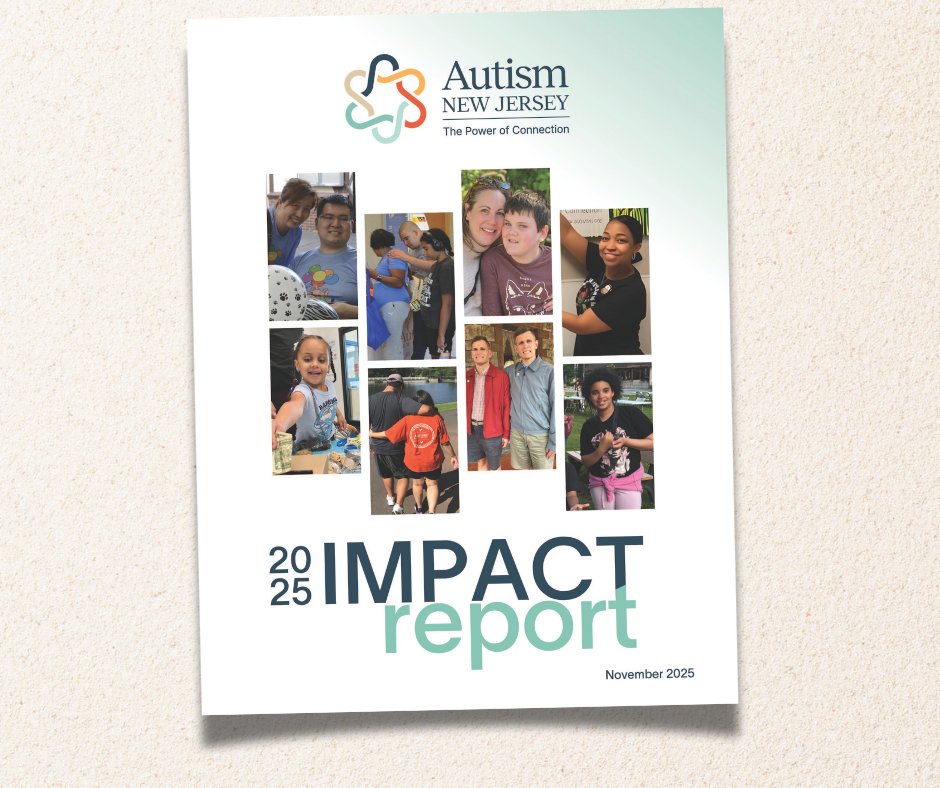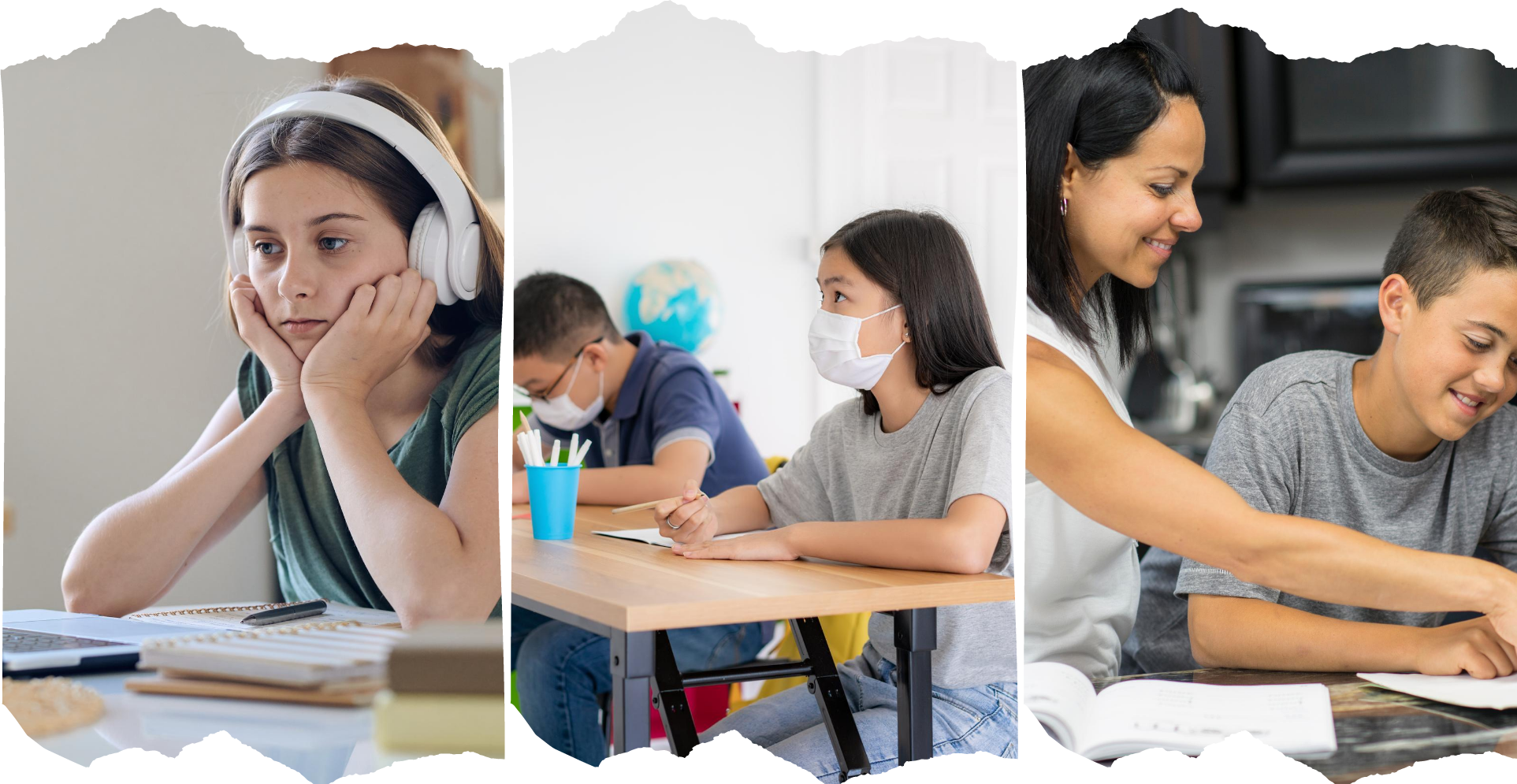
The reopening of schools in the fall of 2020 is complex as each school district is tasked with creating their own plan to provide instruction. Three (3) types of re-opening models have been established: Remote, In Person and Hybrid. Additionally, some parents have also been withdrawing their children from the school district altogether and choosing to homeschool.
With back-to-school planning looking different this year, Autism New Jersey compiled the following considerations to help families become better informed and make decisions in their children’s best interest in these changing times.
To begin, here are the models used to deliver education.
| Remote Learning: Also known as "Virtual" or "At-Home" Learning. Students and teachers engage in virtual-only classes, activities, and events. | |
| In-Person: Instructional interaction that occurs “in-person” between the teacher and student. | |
| Hybrid: A combination of in-person and remote instruction. | |
| Homeschooling: Educating children at home instead of sending them to a traditional public or private school. |
 Remote Learning
Remote Learning
Students with disabilities are still entitled to receive a Free Appropriate Public Education through remote learning to the maximum extent possible. This option is available to all parents, even if your school district plans to reopen for in-person instruction. So, if you are not comfortable sending your child back into the school building, you can opt for remote learning.
If this is the model you will be using, you will want to discuss the following questions and considerations with your IEP team:
- How are my child’s special education and related services going to be delivered? Will it be completely remote or remote with in-home supports?
- What are the technological supports needed?
- What amendments need to be added to the IEP for purposes of remote learning?
- Are all agreed upon changes documented in the IEP?
 In-Person
In-Person
In-person instruction can be beneficial as it is gives students access to trained staff to implement their IEP and related services, especially for those who struggle to stay focused and engaged remotely. However, as health remains a priority, most reopening plans consist of safety protocols that the students are required to follow.
Some considerations for in-person learning are:
- Can your child wear a mask? If your child cannot wear a mask, ask for the IEP to be amended to add a goal to learn to wear the face covering. Send in multiple masks for your child and label them so they do not get confused with other students’ masks.
- Does my child have any medical issues that may make them especially vulnerable?
- Does my child understand safety protocols such as social distancing, masking wearing, handwashing, etc., and what is their ability to follow these protocols?
- Review and practice proper hand washing techniques at home, especially before and after eating, sneezing, coughing, and adjusting a mask or cloth face covering.
- Review and practice social distancing.
- Talk with your child about how school will be different (e.g., desks far apart from each other, teachers wearing masks, possibility of staying in the classroom for lunch).
- Will your child be taking the bus, and can they ride safely?
- Plan for possible periods of quarantine and school closures as in-person instruction is subject to change.
 Hybrid
Hybrid
Hybrid models can vary from school to school. Different hybrid models could consist of:
- In-person instruction for part of the day/week, and remote learning for the rest.
- Starting the school year with remote learning but switching to in-person learning for the rest of the school year.
- Cohorts: a cohort model is dividing students into distinct groups that stay together throughout the school day during in-person classroom instruction.
If your school is using a hybrid model, you may want to review the in-person and remote learning considerations.
 Homeschooling
Homeschooling
Homeschooling is different than home instruction as there is no general law which requires school districts to provide special education services to homeschooled students. According to New Jersey’s Department of Education, “If the child is eligible for special education and related services, the public school district must make a free, appropriate public education available only if the child enrolls in the district. If the child does not enroll in the public school district, but the district chooses to provide services, the district would develop a plan for the services to be provided.” In other words, homeschooled children do not have an individual right to the same special education and related services as they would if they were enrolled in public school.
Parents should proceed with caution when considering homeschooling as an option and fully explore the implications of removing their child from their school district and losing the IDEA’s protections.
Experience Our Power of Connection
Autism New Jersey will continue to follow recommendations from the CDC and state Department of Health as the state begins to move through the stages of reopening.
We’re proud to say that, since the beginning of the pandemic, not one call to our Helpline has gone unanswered. If you need assistance, call us at 800.4.AUTISM or information@autismnj.org or send us a message/chat with us via the link at the bottom of this page.
We remain focused on our mission to be a resource for the autism community. We recognize that there are many questions and complex considerations, and we are working hard to address these substantial issues and provide our expertise and stakeholder perspectives as plans are developed. We encourage you to regularly visit our central hub of coronavirus resources for the autism community.
